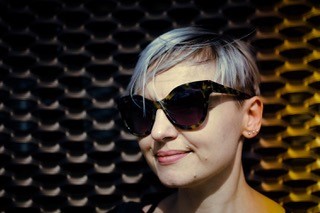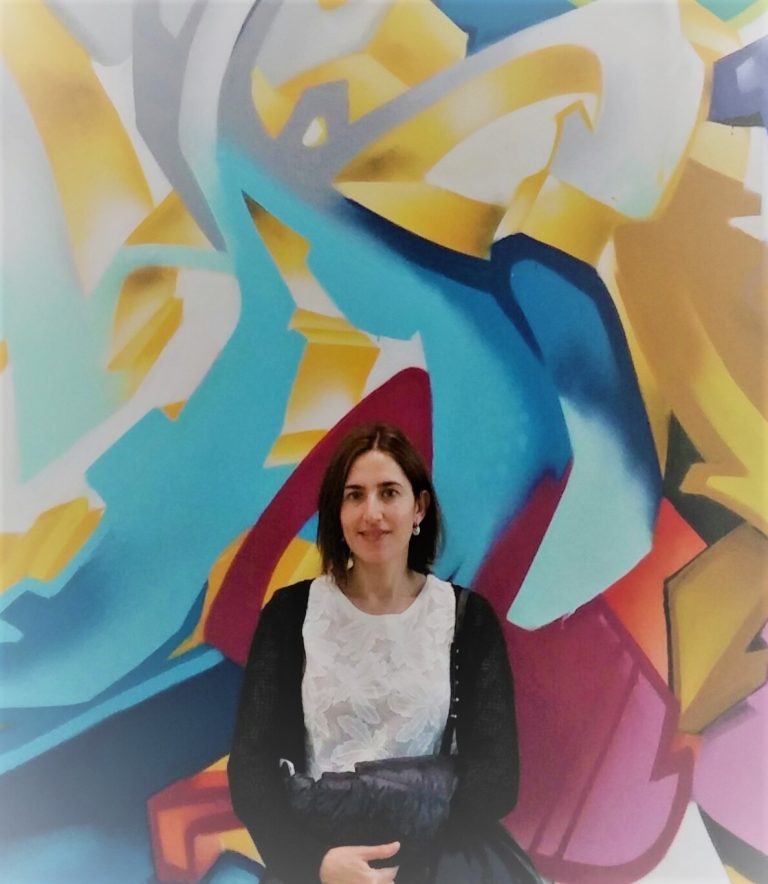In her 1988 “Situated Knowledges: The Science Question in Feminism and the Privilege of Partial Perspective” Donna Haraway suggests that new metaphors should be forged to respond to “ an earthwide network of connections” (580) and thus see the object of knowledge as a full spectrum of agencies of the world. Also Felix Guattari recognizes, as indicated in his The Three Ecologies, the need to map whole range of heterogenous perspectives (social, mental and environmental vectors) to refrain from the failures and limitations of western models of knowledge production. Both standpoints support cross- disciplinary practice-based research, that embrace relations to times, material, political territories and our more-than-human entanglements. Drawing on that perspectives, the article explores the question how artistic practices contribute to the revisions of knowledge production and thus enable us, referring to Donna Haraway’s statement, “to become more answerable for what we learn how to see” (583)?
While unfolding in situations, planes of composition as well as institutional frameworks, the analyzed practices merge scientific, philosophical, artistic with activist research. They rework the conventional methods of knowledge formation and practice to unfold more-than-human stories removed from public debates. Thus, I will give insight into an individual research-based project of Helena Hunter Falling Birds, a poetic experiment that materializes what it might mean to encounter extinct and endangered birds and bring the Natural History Museum specimens into contact with the broader context of environmental change and species depletion.
Subsequently, I will discuss the major tenets of a temporary institution Museum of Nonhumanity, launched by Laura Gustafsson and Terike Happoja in Helsinki who take us on an immersive and cross- disciplinary journey through the anthropocentric conceptualization of nonhuman agents in socio-cultural discourse to activate us to take responsibility for the accepted status quo.
At its final stage, the article will investigate Olafur Eliasson’s collaborative/collective projects that engage locally marginalized groups from around the world to address global issues of energy poverty and climate change. As I will indicate, the (re)situation of more-than-human knowledge in the practices enables us to acknowledge both the peripheries and the depths of our wordily entanglements with the intensive dynamics of the nonhuman world and thus eradicate inequalities we all share. In this sense, the artistic process is seen as the reconfiguration of knowledge through material practices of engagement that requires from us, in the idiom of Karen Barad, ethico-onto-epistem-ological approach thanks to which we become responsible, capable to respond, and accountable for “the lively relationalities of becoming, of which we are a part” (69).

Justyna Stępień is an Assistant Professor in Cultural Studies in the Department of British Literature and Culture, where she received her doctorate in 2012. She is an author of British Pop Art and Postmodernism (2015), an editor of Redefining Kitsch and Camp in Literature and Culture (2014) and co-editor of a special issue of Open Cultural Studies Journal Transmediating Culture(s)? (2017). She is currently working on her book devoted to posthumanist artistic practices. She belongs to an international research group/ collective The Posthuman Art and Research Group (aka. Dori.O) that consists of artists and researchers from all over Europe.
Her research interests include posthumanism in artistic practices, new materialism, body studies, affect studies, performance studies, the philosophy of Deleuze and Guattari, and fashion as a cultural practice.
Academia.edu: https://ktfp.academia.edu/JustynaStępień
Science fiction is a very productive genre to question both the boundaries of the human, the transhuman and the posthuman. It often interrogates the conception of the human as having an able body and mind and the belief that enhancement through technological prostheses can only lead to the improvement of the human condition and, ultimately, to a post-embodied future, as many advocates of transhumanism claim. Curing the body through technology is a powerful trope that science fiction has often explored. In this presentation I want to focus on Eli Horowitz, Matthew Derby and Kevin Moffett’s The Silent History (2012), a touchscreen serialized novel for iPhones and iPads originally designed as an app. It is a form of speculative fiction that deals with how, since the early 2010s some children start to be born without the capacity to learn, understand or use language. The disorder is known as “Emergent Phasic Resistance” and the children affected by it are called “silents”. The condition expands from 2011 until 2041 when the story comes to an end. People’s feelings about the silents move from disorientation at first to rejection and contempt when they start to be called “mutetards” and develop their own form of communication. By 2034 a device called Soul Amp is invented that grants silents the ability to speak and by the end of the 2030s a federal law is passed to make its implantation compulsory, portraying the non-normative disabled body as deficient and turning the non-implanted silents into infrahuman or below the status of humanity. The silents are dangerous because in their constant expansion and in their rejection of technological prostheses they pose an alternative to the evolutionary supremacy that should lead to transhuman transcendence and the posthuman. As the director of the project to archive the changing experiences and testimonials of the silents claims: “The very existence of this condition demands a reexamination of what exactly it is that makes us human”. By combining theories from disability studies, transhumanism and critical posthumanism I hope to explore the ways in which the novel questions the essence of what makes us human in the time of the posthuman.

Sonia Baelo-Allué is Senior Lecturer at the Department of English and German of the University of Zaragoza (Spain) where she currently teaches U.S. Literature and British and American Culture. Her research centres on contemporary U.S. fiction, trauma studies, 9/11 fiction, digital fiction and posthumanism. At present she co-directs a research team currently working on “Contemporary North American fiction and the 4th Industrial Revolution: From posthumanity to privation and social change”.
Her more recent publications include the journal articles “Transhumanism, Transmedia and the Serial Podcast: Redefining Storytelling in Times of Enhancement” (in International Journal of English Studies, 19.1. 2019) and “Exhaustion and Regeneration in 9/11 Speculative Fiction: Kris Saknussemm’s ‘Beyond The Flags’” (in Revista de Estudios Norteamericanos, 22. 2018).
She has also published the book Bret Easton Ellis’s Controversial Fiction: Writing between High and Low Culture (London and New York: Continuum, 2011) and co-edited with Dolores Herrero two books on the representation of trauma in literature: The Splintered Glass: Facets of Trauma in the Post-Colony and Beyond (Amsterdam and New York: Rodopi, 2011) and Between the Urge to Know and the Need to Deny: Trauma and Ethics in Contemporary British and American Literature (Heidelberg: C. Winter, 2011).
At present she is working on an edited volume on Posthumanism and Transhumanism in Twenty-First Century Narrative to be published by Routledge in 2021.
Personal website in Academia: http://unizar.academia.edu/SoniaBaeloAllu%C3%A9
Research Project website: http://typh.unizar.es/
Google Academic: https://scholar.google.es/citations?user=mKkEGgQAAAAJ&hl=es